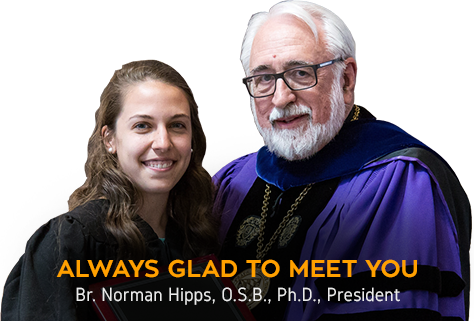As I often mention, I see myself primarily as a teacher, but an additional important role that I play is as a researcher. I only half-jokingly titled this blog entry as “joys” because, while research can often be very fun, it can also be quite tedious and frustrating.
Some of the frustration stems from the publication process. While analyzing data and reading through previous research to prepare a draft manuscript can be enjoyable (albeit time-consuming), the publication process can be frustrating. In my field of organizational behavior (as is the case in many other fields as well), the process often begins with submitting research to an academic conference. Oftentimes, research takes the form of a formal paper (yes, professors write papers too – something I did not realize when I was an undergraduate student). The most prestigious conference in management is The Academy of Management International Meeting, which receives thousands of submissions every year. Researchers get feedback on their manuscript during the review stage and, if the paper is accepted to be presented at the conference, more feedback will be provided by the audience.

Upon coming home from the conference, researchers begin revising their paper after considering the feedback. Revisions could take the form of (among other activities) adding data, analyzing data with a different method, changing a theoretical framework that the research draws upon or (at an extreme) scrapping the study and starting from scratch.
Once improvements have been made to the draft, researchers will send it on to an academic journal or edited book volume. Most of these in the management and organizational behavior fields are double-blind peer-reviewed meaning that the authors’ names are removed from the manuscript draft (so reviewers don’t know who wrote it) and those reviewers who recommend the piece for publication are also not known to the authors. This allows for anonymity so that a piece of research can be reviewed based on merit alone and not necessarily on a relationship or bias between the reviewers and authors. Reviewers can make one of three recommendations: they can accept the research (which is rare for the first submission), reject the research or request a revision of the research. If the piece is rejected, the researchers must submit it to a different publication outlet after making revisions or decide to scrap the project completely. If a revision is requested, researchers must rewrite or reanalyze portions of the research before publication.
The above process (from initial conception of the research question, through data collection and writing the first draft, all the way to publication) is very time consuming. By my estimates, this seems to take about 3-4 years on average. Though the above description presents the “typical” academic publication process, I have experienced a lot of variation in the process as well.
Despite all of the frustration, research is important to do. In fact, I was drawn to write this month’s blog about research for two reasons related to the importance of research. The first is that, as the semester wraps up, my graduate Research Methods course (in the Master of Science in Management: Operational Excellence program) is drawing to a close. As I reflect on the semester, I am proud of my research students because they worked hard on some very interesting pieces of research that I think will be publishable in the short term. They learned a lot about how to do research.
The second reason is that I’ve been enjoying working on research with graduate students and faculty colleagues greatly over the past few months and it’s exciting to see some of the fruits of our work now being published. While a study I’m working on with Muyang Li and Selin Konur (two graduate MSMOE students) as well as Dr. Terrance Smith (executive director of the Kennametal Center for Operational Excellence and an MSMOE instructor) requires some additional work before it is ready to submit, I truly think that the topic we are studying (first identified by Selin and Muyang) is groundbreaking and has room for a big impact in the field of management. Other research articles that I helped co-author have just been published earlier this month or are forthcoming. Three recent publications that I’m particularly proud of include:
- “Management Response to ‘Laudato Si’: An Operational Excellence Perspective” in the Journal of Biblical Integration in Business co-authored with Drs. Bill Hisker and Jeff Godwin, both of whom also teach management at SVC. I’m really proud of this one because it takes some of Pope Francis’ teachings from his 2015 encyclical and suggests that businesses can use OE practices to respond to some of his concerns.
- “Examining the Millennials’ Ethical Profile: Assessing Demographic Variations in Their Personal Value Orientations” in Business and Society Review. I am really proud of this piece for two reasons. First, it suggests that there are a lot of variations that exist within often-stereotyped demographic groups (in this case, age-based generational groups) which, in essence, illustrates the inaccuracy of stereotypes. Second, I was asked to work on this research by first author Dr. James Weber, a close personal friend and mentor from Duquesne (as well as a highly regarded business ethics guru).
- “Affective Well-being and Counterproductive Behavior in Health Care Housekeepers” in the Journal of Leadership and Management. This one was a really productive collaboration between John Gnecco and Danielle Jackson (two MSMOE alumni who both work in health care and who helped craft our research question as well as collect data), Dr. Tom Cline (professor of marketing who helped analyze the data) and me; I suggested constructs to study and aided in the writing. This study is interesting because of three new findings that add to the academic field of management: (1) stigmatized groups may become emotionally immune to negative stereotypes in the workplace; (2) emotional apathy and counterproductive work behaviors are related and (3) types of counterproductive work behaviors vary based on particular job duties.
I’m excited by each of these pieces because I think they not only add to research in business academics but could also change the way that business leaders approach their roles. I’ve also found myself drawing on these articles in the classroom. When I find myself getting frustrated by the research process, I need to take a step back and reflect on the importance of research. In my field, research has vast implications for advocating best practices within organizations and instructors can also use this research to inform their teaching. In other words, research is important because it can and should impact the way that businesses operate and what is taught in business curricula.
Have you ever been a part of or read research that changed your way of thinking? How did it impact you? I’m interested to learn about your experiences. Email me at michael.urick@stvincent.edu or connect with me on social media (www.facebook.com/urickmj and www.linkedin.com/pub/michael-urick/a3/775/5b/).


 中国学生
中国学生 Estudiantes
Estudiantes




